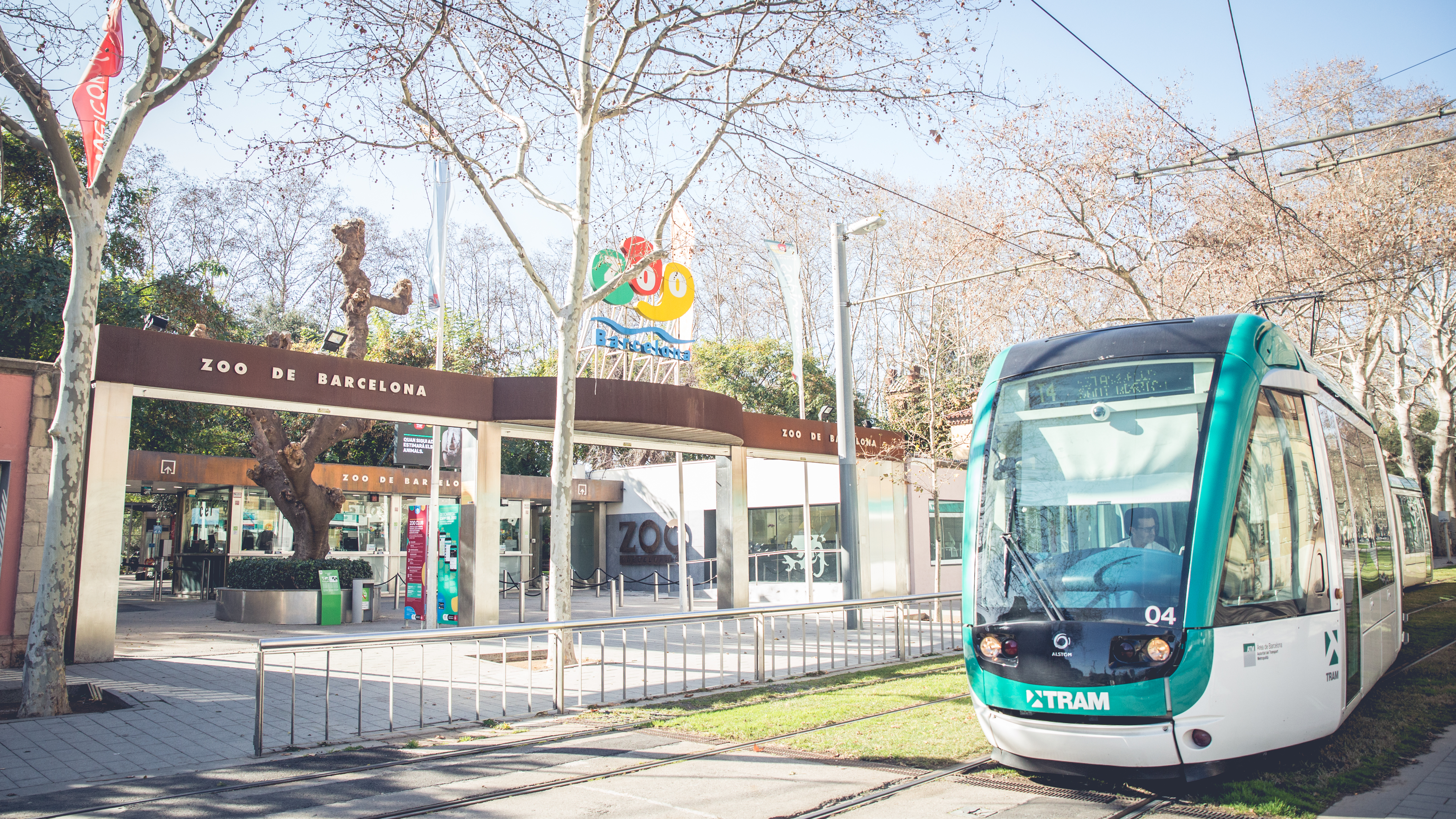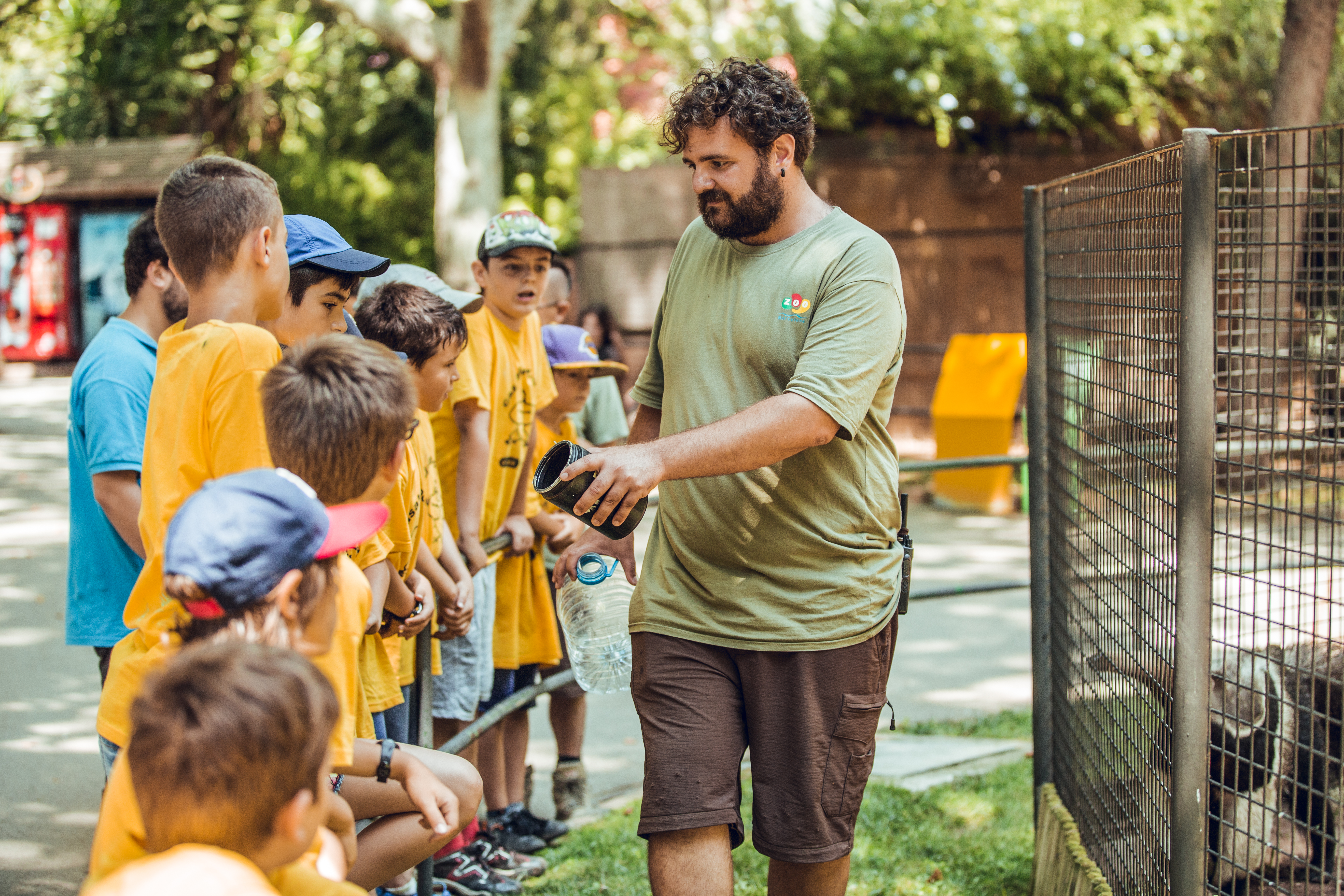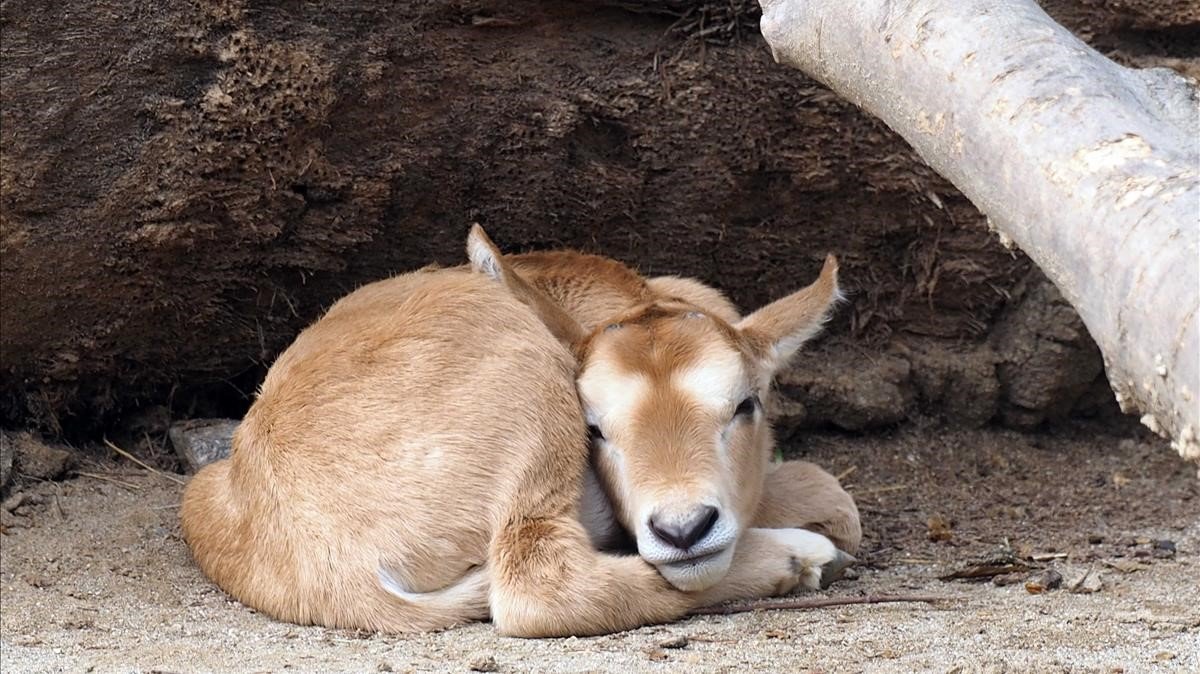The Zoo is reopening to the public, and we are doing so having put in place all the hygiene and protection measures to ensure a safe experience for all visitors. We are resuming activities with a limited capacity of 50% and with daily opening hours from 10 am to 7 pm and ticket booths open until 5 pm.
The Zoo’s facilities closed on 14 March in accordance with the health authorities’ instructions and in coordination with the Barcelona Public Health Agency and the coronavirus crisis Monitoring Committee.
During all this time, we have kept working, always giving the highest priority to animal welfare and the safety of our staff, as well as to the health and safety of all our animals. In addition, thanks to the work of our vets and caregivers, the animals have been well fed and looked after throughout lockdown, and we have continued to carry out their usual behavioural enrichment programmes.

In accordance with the authorities’ instructions, visitors must observe social distancing and use a face mask whenever the 2-metre safety distance cannot be kept. In order to avoid crowding at ticket booths, we recommend that you purchase your tickets in advance. In addition, we have placed a number of alcohol-based sanitiser dispensers throughout the Park, as well as instructions to help visitors follow all the stipulated hygiene rules. We have also added to the Park’s existing restaurants mobile venues adapted to the new situation, where a varied and healthy selection of food is available.
These actions are part of the BCN Safe City project, whose aim is to ensure health and hygiene measures to ensure that people are safe and feel safe at the City’s venues. In relation to this, the Zoo has started the process of obtaining Global Safe Site certification with an Excellence rating. In addition, it is going to be awarded a Safe Tourism Certified seal, a badge issued by the Institute for Spanish Tourism Quality (ICTE) that certifies tourist venues that have successfully put in place the established security protocols and implemented a coronavirus-specific risk prevention system.
The Zoo’s holiday camps are back
With the reopening of the park, the Zoo’s holiday camps are back too. This news has been very well received, with over 500 people signing up. The holiday camps, which will take place from 29 June to 10 September, are aimed at children and teenagers up to 16, who will learn about the nature around them and will acquire values regarding respect for biodiversity conservation. This year, groups will be smaller and with fixed numbers of participants. In addition, health recommendations will be followed at all times to ensure the safety of children and educators. The registration process is open and available on the Zoo’s website.

An expanded app for a fuller and more tailored experience
Coinciding with the reopening of the Zoo, we are re-launching the Zoo app which, in addition to containing information about everything you can see and learn about in the Park, has been updated with suggested routes tailored to each visitor based on the time available to them, as well as a new game in which you can explore the park’s biodiversity in a fun and educational way. The app will also provide a direct and agile tool for informing users about news and measures relating to the current health situation. It is available for free for Android from today, and will be available for iOS in the next few days.
35th anniversary of the Zoo Club
While its activities were closed due to the coronavirus crisis, the Zoo launched ActiviZOO, a virtual space with games, stories, curiosities and educational resources for learning and playing as a family. Following its success, we have decided to continue with this initiative in the form of special content for Zoo Club members. The Zoo Club is celebrating its 35th anniversary this year and is already preparing a number of actions, such as enabling members to invite a number of friends and family members and get discounted tickets. All Zoo Club members have seen their season tickets extended for the same amount of time that the Park has been closed.
The most charitable Zoo
The closure of the facilities has caused a number of charity events to be suspended, and we are already working to reschedule them for the next few months. The first one back will be Dreamnight at the Zoo, an activity for children with serious illnesses or disabilities. It will be the fourteenth edition of this charity party held in collaboration with various hospitals and foundations in the Barcelona Metropolitan Area, and it will take place in September. In the last quarter of the year we will hold other now-traditional events, such as the Sight for Everyone day with the Ramon Martí i Bonet Foundation against blindness, or The Day with the Most Heart in partnership with Vall d’Hebron Hospital’s Paediatric Cardiology Department.
Conservation and awareness work does not stop
Work on the conservation and preservation of species and their habitats has continued at the Zoo. During the months of lockdown, which, as you know, have coincided with spring, the time when nature is at its most radiant, many species have been born at the Zoo. These include, among others, a baby scimitar oryx (Oryx dammah) (a species that is extinct in the wild), a Sahelo-Saharan antelope (which is also extinct in the wild) and a dama gazelle (Nanger dama mhorr), a critically endangered species according to the International Union for Conservation of Nature (IUCN) Red List of Threatened Species. Both these species are from the Sahel bioregion, whose protection and conservation we have been committed to for a long time.

Regarding projects in native habitats, we have taken a very significant step, together with the Besòs Tordera Consortium and the Rivus Foundation and as part of the project for the study of the common otter (Lutra lutra) in the Besòs basin, in capturing the first images of a family of this species, which had disappeared from the area in the latter half of the 20th century. The reappearance of the otter in the Besòs basin is the direct result of the efforts made to purify the water and improve and adapt the structure of the habitat to this species.
We have also created the TuroCat project, which is coordinated by the Barcelona Zoo Foundation with the Generalitat de Catalunya’s Department of Territory and Sustainability and the Trenca Association, and co-funded by the Zoo and Fundación Biodiversidad. The aim of the project is to recover the common ferret (Mustela putorius), one of Catalonia’s least well known and most endangered carnivores whose viable population, according to the study carried out, is composed of only a handful of individuals in the Empordà region.
The discovery of a group of marbled newts (Triturus marmoratus) in the Aigüamolls de l’Empordà natural park, with a male and several females and a large number of larvae at different stages of development, is also worth highlighting. This species was thought to have disappeared from the area in the early 2000s and has been rediscovered thanks to the work carried out by the IAEDEN Amphibian Observatory task force, a project funded by the Barcelona Zoo Foundation and carried out in collaboration with the Aiguamolls de l'Empordà Wildlife Centre and the CREAF ecological and forestry research centre.
With regard to awareness-raising, we are planning a special day to celebrate World Chimpanzee Day on 14 July, an opportunity to learn a little bit more about the Zoo’s great family of chimpanzees and about the difficult situation the species is in through a series of talks, games and workshops. It will also provide an opportunity to learn first hand about the work carried out by the joint organisers of the event: the Jane Goodall Institute Spain, the Tacugama Chimpanzee Sanctuary (Sierra Leone), Fundación Mona and SOS Primates.
In fact, as we always explain, awareness and education are one of our keystones. We truly believe that we are one of the best environmental education facilities in Catalonia. During lockdown, we wanted to continue providing online activities on our website in order not to lose touch with people. However, we have missed the warmth of children and families, one of Barcelona Zoo's raisons d’être.
Our commitment to the preservation of ecosystems
We have been subjecting our ecosystems to overwhelming pressure for decades, with clear consequences: deforestation, pollution, alteration of complex biological and ecological cycles and, finally, the transmission of infectious diseases, such as, unfortunately, Covid-19. Illegal wildlife trafficking, regardless of the reason, must be stopped and eradicated. Animals are not responsible for pandemics. Barcelona Zoo is committed to this goal.




